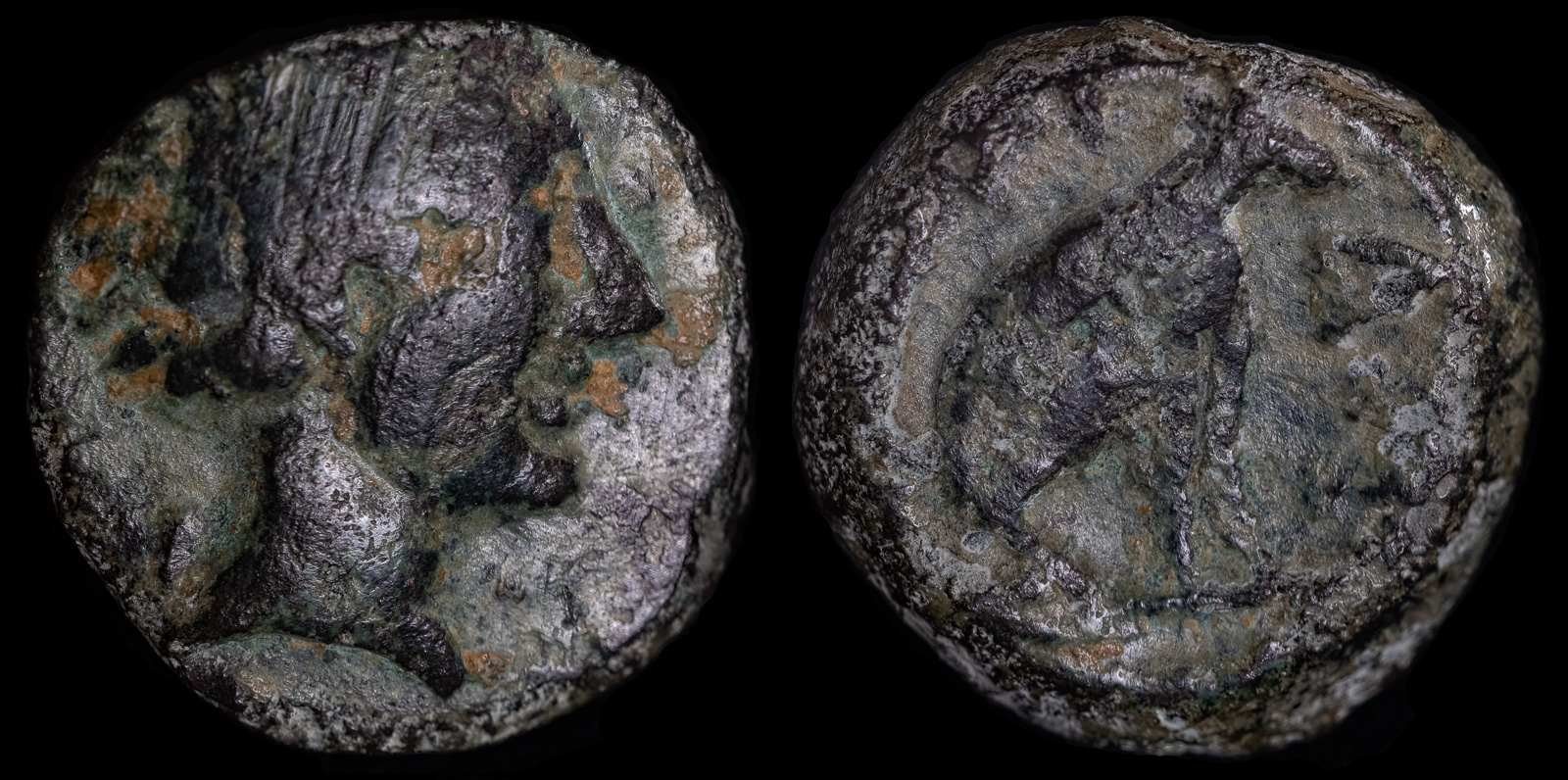
Crete, Kydonia
Circa 4th century BCE
Æ 1.89g, 13mm, 9h
Young male head to left
Hound seated to right, [KY]ΔΩ around.
Svoronos, Numismatique 49; SNG Copenhagen 412
Technically, Kydonia never faltered as a city. Archeological evidence has uncovered pottery as old as 3000 BCE and the modern city of Chanos is what used to be Kydonia.
Minoan ruins indicate that culture occupied Kydonia for some time, but Herodotos states the city was founded by settlers from Samos in 520 BCE. Homer refers to Kydonia as a tribe, not a city, so it’s plausible that at the time Kydonia wasn’t hellenized.
Later, Aegina sent their own colonists and enslaved the Samians.
The city played host to the end of the Sacred Wars when Phalalaikos led a band of mercenaries against it. In a weird twist, he was killed when lightning struck a siege engine he was on, and the siege failed.
Strabo lists Kydonia as one of the three most powerful cities in Crete along with Knossos and Gortyna. Interestingly, the site of ancient Knossos was unknown for many years until it was discovered by Robert Pashly, who used only the information provided in ancient texts.
Per legend, Kydonia was founded by King Kydon.
Some debate exists over the meaning of the dog on the coin. Later coinage depicts an infant being nursed by a dog and the two main candidates are King Kydon and Zeus. Svoronos believes it was Zeus.
Personally, I’m more inclined to believe it was King Kydon, based on this coin. While we don’t know who exactly is on the obverse, images of Zeus are well known and this clearly isn’t he. My guess is the obverse is Kydon and the reverse is his loyal nurse-dog. That would make sense since most coinage of this time has an obverse and reverse that go with each other.
Kydonia is besieged by Phalaikos and his mercenaries, aided by Phokaia. He is killed when lightning strikes a siege engine.
Aptera attacked and captured by Kydonia.
216 BCE
The Lyttian War is fought between an alliance led by Knossos and one led by Polyrhenion. On the side of Knossos were Rhodes, the Aetolian League, and Kydonia. On the side of Polyrhenion were Lyttos, Macedon, and the Achaian League.
Kydonia and Polyrhenion capture Phalasarna.
Polyrhenion and Kydonia capture Apollonia.
The Roman general Quintus Caecilius Metellus conquers Crete, incorporating it into the Roman Republic. Eleutherna, along with Gortyna, Knossos, and Kydonia, come under Roman rule
Augustus gives Kydonia its freedom due to their assistance.
July 21
An earthquake destroys Aptera, Gortyna, Eleutherna, and Knossos on Crete. Alexandria is devastated by a tsunami, and Kyrene is also affected by the same tsunami. Kydonia is also damaged. In the Peloponnese, Messene is affected.